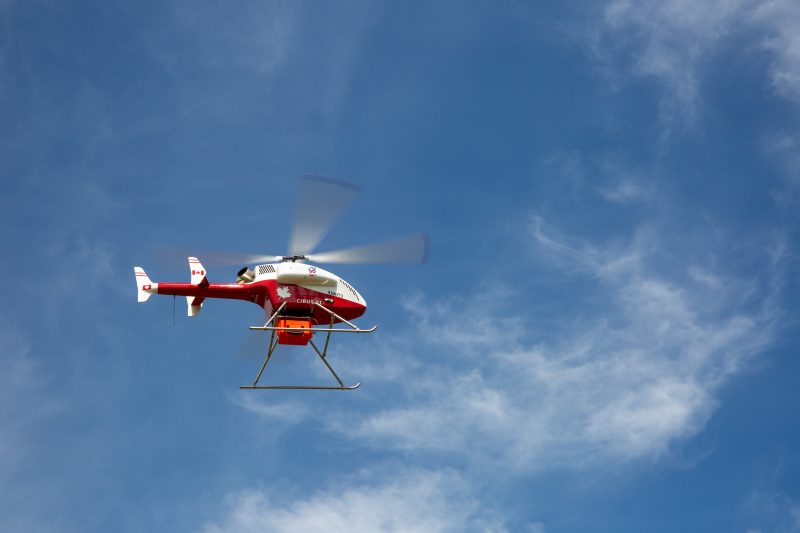Researchers in southern Alberta are testing the use of drones to deliver COVID-19 test kits and medical equipment to remote communities amid the ongoing pandemic.

The hope is the drones can help connect people in those communities to laboratories more quickly
“We know that testing for COVID-19 is one of our most effective tools against its spread,” project co-principal investigator Dr. John Conly said in a news release.
“Many remote communities in Canada do not have easy access to testing centres and medical supplies to support rapid testing and containment. Drones can help us respond to that need.”
The project is a partnership between the University of Calgary, SAIT, Alberta Health Services and Alberta Precision Laboratories.
Right now, samples from remote communities in Alberta are driven to labs, but the project will see if drones can be used to complement existing ground services and help provide access when traditional means won’t work.
Ryan Robb, CEO of the Stoney Tribal Administration, said a delivery system using drones could play a “critical role” in the “health and safety of our communities.”
“Like many remote Canadian communities, weather can play a key role, for example depending on the time of the year, ice roads and floods can create access barriers.”
In July, researchers conducted a test run at the Morley reserve, delivering PPE and COVID-19 test kits.
“We were able to confirm test kits for COVID-19 can be delivered to a remote area, and the samples can survive the return to a lab with no degrading of the specimen,” Conly said.
“This could open many doors for us to reach remote and isolated locations for all medical emergencies, including the current pandemic.”
Officials say the samples used in the trial weren’t infectious and pose no risk to the public.
Researchers are now planning more trial runs in the coming weeks at the Eden Valley and Big Horn reserves.
If drone delivery proves effective, Conly says the project could grow from a Calgary initiative to a tool used nationally and even globally to respond to medical emergencies in remote and isolated areas.
“In many areas of Canada, drones must be guided and monitored with the assistance of line of sight,” Wade Hawkins from SAIT’s Centre for Innovation Research in Unmanned Systems (CIRUS) said.
“We hope to move beyond visual line of sight and fly from a lab or health centre directly to a remote community.”
- McLean accuses Calgary third-party advertiser of ‘whipping votes’ in favour of rezoning bylaw
- Canadian curler Chelsea Carey says don’t compare me to Jennifer Jones
- Firefighters battle blaze at vacant house in northwest Calgary
- 7 sent to hospital after carbon monoxide poisoning incident in northwest Calgary







Comments